Each day we hear something about identity theft, a new scheme or another company hacked. So the question becomes “Is your tax return information safe?”
The IRS recently published a scheme that allowed criminals to access 104,000 tax return transcripts. This was done by collecting personal information about the individual from other sources then using it to gain tax information. According to the IRS, the items needed to verify identity are social security number, date of birth, address, filing status and a few out-of-wallet questions (these are typically “did you live at a specific address” or “did you purchase a specific vehicle”). These are supposed to be questions only the taxpayer could answer.
However, the reason for the breach was that the criminals had not only gathered the information on individuals, but also put that information to use to access prior tax returns. The IRS believes this was an attempt to gain information to file fraudulent tax returns. If a tax return is similar to what has been filed in the past, the IRS computer system in place does not mark it as an exception. The IRS believes of the 104,000 files accessed 15,000 might result in false tax filings.
What you should do?
1) Make sure to keep your personal financial information secure and confidential. If this is stored on a computer talk to an IT service to make sure it is secure.
2) Do not use the same password for everything and make the passwords unique in nature so add numbers or caps to them. If it is stored on paper make sure you know who has access to those paper files. Do not leave it lay in a place where multiple people have access.
3) One of the best things an individual can do though is watch their credit report. Verify that you do have each of those accounts open and if you have accounts that you no longer use and no longer need close them. There is a free credit report available to each individual once a year at www.annualcreditreport.com. This is the site recommended by the Consumer Financial Protection Bureau.
If you find this information helpful, please share with a friend and ask them to subscribe to the Active Accounting blog on the website.
The Wassman CPA Services website and blog is meant to offer general information to our readers. The information provided is not intended to replace or serve as a substitute for any accounting, tax or other professional advice, consultation or service. You should contact Wassman CPA Services for advice concerning specific matters prior to making any decisions.

